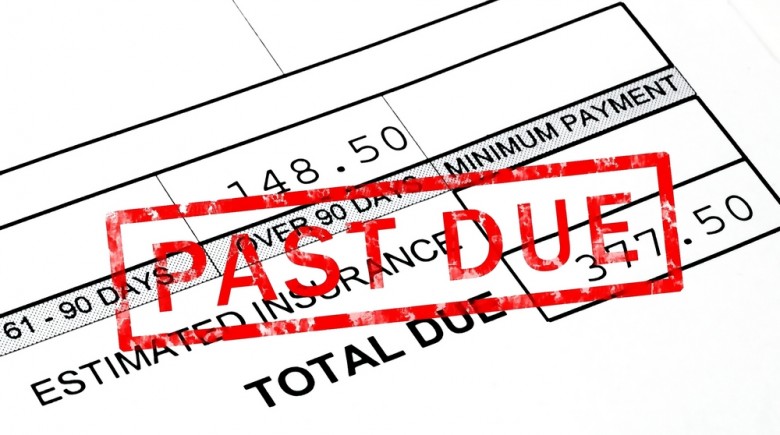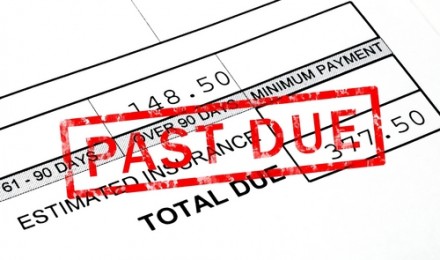Coping with debts you cannot pay is never a fun process, and it can be downright stressful to have debt collectors calling your home at all hours of the day and night to try to force you to pay. Debt collectors often use aggressive tactics to try to force you into sending at least some portion of your payment, especially as they often work on commission or on a system where they have to collect a certain amount of debt to meet quotas. Yet, debt collectors must obey the law and are constrained by certain rules. Dealing with debt collectors requires that you know your rights and take steps to make sure that any debts that you pay are cleared up once and for all.
Tips for Dealing with Debt Collectors
The following tips will help you in dealing with debt collectors so that you can cut down on stress and, ideally, resolve your financial problems in the new year.
1) Pay attention to the age of the debt they are trying to collect
There is a seven-year statute of limitations on collecting debt, and if your debt is older than this limit, it is no longer legally collectible. Often, old debts are resold for pennies-on-the-dollar and you may find yourself dealing with debt collectors for a debt that you’d almost forgotten you had.
When a debt collector calls you to try to collect payment on an old debt, it is very important that you think very carefully before paying any portion of the money owed. Paying some portion of the debt can restart the collections clock and make the debt collectible again. While you might sometimes wish to pay the debt to get the “charged-off” notation off your credit report, or if you feel a moral obligation to pay the debt, you should only do so if you have it in writing that your payment will result in removal of all negative credit reporting associated with the account. Do not pay until you have it in writing!
2) Know your rights
The Fair Debt Collection Practices Act imposes significant limitations on when debt collectors can call, who they can call, and what they can say. For instance, if you request that debt collectors refrain from calling you at work, they usually must do so. Debt collectors are not allowed to contact you early in the morning or late at night and they are not allowed to reveal information about your debt to family or neighbors (although they typically can contact people to try to obtain information about your current contact info if it is unavailable to them).
They also cannot threaten legal action or send you papers that look like legal papers that aren’t, unless they are actually planning on taking legal action.
Be sure you are aware of these and other consumer rights under the Fair Debt Collection Practices Act, and if the creditors are engaged in harassing, abusive or dishonest behavior, let them know that you will be taking action. There are stiff penalties for debt collectors who violate the Fair Debt Collection Practices Act and if you are the victim or harassment or repeated violations, contact an attorney for help.
3) Demand they prove you owe the debt
If a debt collector is calling you about debt, especially if that collector is not the creditor who you initially borrowed money from, you can demand that they provide proof that you owe the debt. The Fair Debt Collection Practices Act Section 809 covers your right to Validation of debts in 15 USC 1692g and stipulates that when you request validation in writing within 30 days of collections activity, the debt collection against you must stop until the creditor/debt collector can provide his proof. Proof of your debt may include copies of original credit documents or judgments against you
4) Get a written settlement offer before settling our debt
Settling your debt is another option for dealing with debt collectors once and for all. Settling debt involves negotiating a deal where you agree to pay back a portion of what you owe in a lump sum and the creditor agrees to forgive the rest. Credit counseling companies facilitate debt settlement agreements for people regularly, but you can do this yourself by writing a letter making a settlement offer.
It is essential, however, that you get the terms of the debt settlement in writing BEFORE you send any payments to your creditors. You should also try to negotiate to have any negative reporting removed from your credit report as a condition of the settlement. Again, get this in writing as well.
5) Always check your credit report
Whenever you pay off a debt, through settlement or otherwise, you must always check your credit report. If debt collectors or creditors are not properly reporting the status of your debt, you can dispute the inaccurate information with the three major credit reporting agencies and an investigation will be conducted to make certain that the report is accurate. While it can be a slow process to get inaccurate information removed, it is your legal right to dispute inaccurate data and you should take advantage of that legal right to make sure your credit score isn’t being unfairly damaged by debt you’ve settled or paid.
Coping with debts you cannot pay is never a fun process, and it can be downright stressful to have debt collectors calling your home at all hours of the day and night to try to force you to pay. Debt collectors often use aggressive tactics to try to force you into sending at least some portion of your payment, especially as they often work on commission or on a system where they have to collect a certain amount of debt to meet quotas. Yet, debt collectors must obey the law and are constrained by certain rules. Dealing with debt collectors requires that you know your rights and take steps to make sure that any debts that you pay are cleared up once and for all.
Tips for Dealing with Debt Collectors
The following tips will help you in dealing with debt collectors so that you can cut down on stress and, ideally, resolve your financial problems in the new year.
1) Pay attention to the age of the debt they are trying to collect
There is a seven-year statute of limitations on collecting debt, and if your debt is older than this limit, it is no longer legally collectible. Often, old debts are resold for pennies-on-the-dollar and you may find yourself dealing with debt collectors for a debt that you’d almost forgotten you had.
When a debt collector calls you to try to collect payment on an old debt, it is very important that you think very carefully before paying any portion of the money owed. Paying some portion of the debt can restart the collections clock and make the debt collectible again. While you might sometimes wish to pay the debt to get the “charged-off” notation off your credit report, or if you feel a moral obligation to pay the debt, you should only do so if you have it in writing that your payment will result in removal of all negative credit reporting associated with the account. Do not pay until you have it in writing!
2) Know your rights
The Fair Debt Collection Practices Act imposes significant limitations on when debt collectors can call, who they can call, and what they can say. For instance, if you request that debt collectors refrain from calling you at work, they usually must do so. Debt collectors are not allowed to contact you early in the morning or late at night and they are not allowed to reveal information about your debt to family or neighbors (although they typically can contact people to try to obtain information about your current contact info if it is unavailable to them).
They also cannot threaten legal action or send you papers that look like legal papers that aren’t, unless they are actually planning on taking legal action.
Be sure you are aware of these and other consumer rights under the Fair Debt Collection Practices Act, and if the creditors are engaged in harassing, abusive or dishonest behavior, let them know that you will be taking action. There are stiff penalties for debt collectors who violate the Fair Debt Collection Practices Act and if you are the victim or harassment or repeated violations, contact an attorney for help.
3) Demand they prove you owe the debt
If a debt collector is calling you about debt, especially if that collector is not the creditor who you initially borrowed money from, you can demand that they provide proof that you owe the debt. The Fair Debt Collection Practices Act Section 809 covers your right to Validation of debts in 15 USC 1692g and stipulates that when you request validation in writing within 30 days of collections activity, the debt collection against you must stop until the creditor/debt collector can provide his proof. Proof of your debt may include copies of original credit documents or judgments against you
4) Get a written settlement offer before settling our debt
Settling your debt is another option for dealing with debt collectors once and for all. Settling debt involves negotiating a deal where you agree to pay back a portion of what you owe in a lump sum and the creditor agrees to forgive the rest. Credit counseling companies facilitate debt settlement agreements for people regularly, but you can do this yourself by writing a letter making a settlement offer.
It is essential, however, that you get the terms of the debt settlement in writing BEFORE you send any payments to your creditors. You should also try to negotiate to have any negative reporting removed from your credit report as a condition of the settlement. Again, get this in writing as well.
5) Always check your credit report
Whenever you pay off a debt, through settlement or otherwise, you must always check your credit report. If debt collectors or creditors are not properly reporting the status of your debt, you can dispute the inaccurate information with the three major credit reporting agencies and an investigation will be conducted to make certain that the report is accurate. While it can be a slow process to get inaccurate information removed, it is your legal right to dispute inaccurate data and you should take advantage of that legal right to make sure your credit score isn’t being unfairly damaged by debt you’ve settled or paid.






